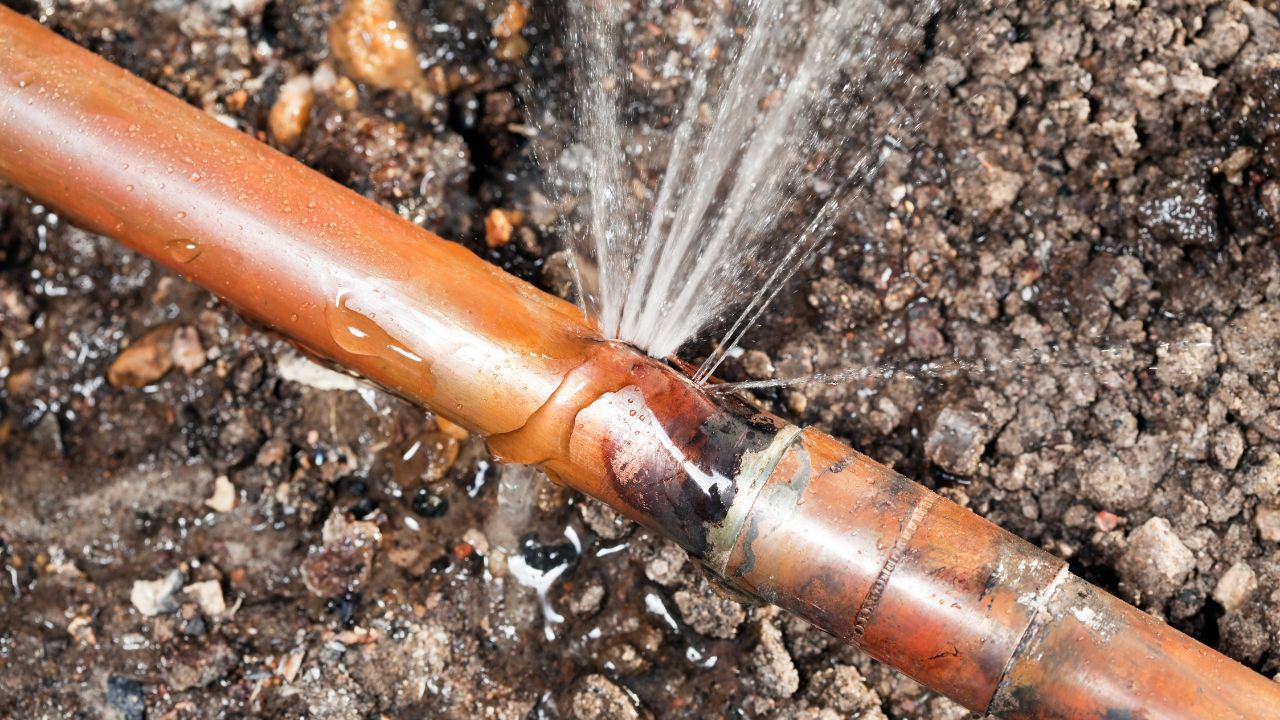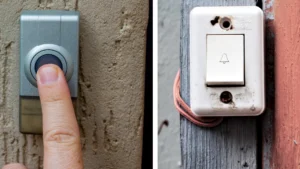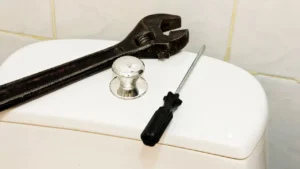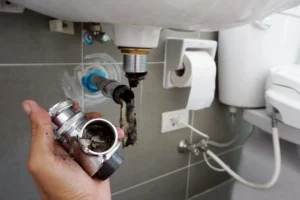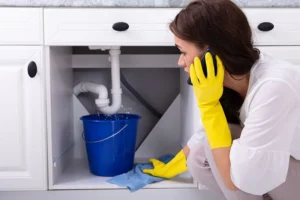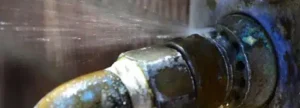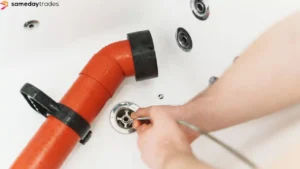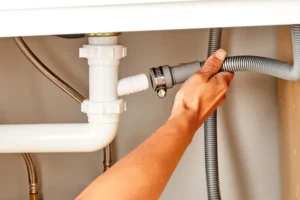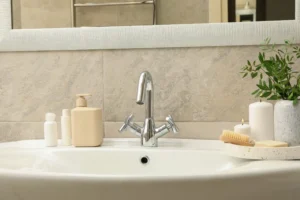Not all plumbing problems are loud or messy. In fact, some of the most damaging issues start quietly. A tiny hole in a water pipe might not be obvious at first, but over time, it can lead to big problems—like mold, water damage, or a rising water bill you can’t explain.
In this article, we’ll go over a few of the common signs that could mean there’s a hidden leak in your plumbing. If any of these sound familiar, it’s probably time to have a plumber take a look.
1. Your Water Bill Is Higher Than Normal.
If your monthly bill suddenly goes up and you haven’t been using more water, a leak could be the reason. Even a small hole can waste a lot of water, especially if it’s in a pressurized pipe.
Here’s a quick test: turn off all taps and appliances, then check your water meter. If it’s still running, water is going somewhere—and it might be behind a wall or under the floor.
2. You See Damp Spots or Discoloration Indoors
Are there areas of your home that seem unusually damp or discolored? Leaks inside the wall or under the floor often show up as watermarks, bubbling paint, or warped flooring. You might even feel dampness underfoot.
If you notice the same patch keeps coming back after drying out, don’t ignore it. It could be water from a hidden hole making its way through.
3. Water Pressure Has Dropped
A drop in pressure can be more than a plumbing annoyance. It often means there’s a problem in the system. If water is escaping through a hole before it reaches your tap, the result is a slow, frustrating trickle.
This could affect just one area or the whole house, depending on where the hole is located. Either way, it’s worth investigating.
4. There’s a Musty Smell—or Mold
Leaking water doesn’t just disappear. It seeps into drywall, wood, and other materials, creating the perfect conditions for mold. If you notice a musty odor that doesn’t go away, or you spot dark patches forming on walls or ceilings, mold could be growing from a leak you can’t see.
Act early. Mold can spread quickly and lead to costly damage—not to mention potential health concerns.
5. Strange Sounds from the Walls or Floor
If you hear dripping, hissing, or tapping noises and no one’s using water, something could be leaking. Water escaping from a pressurized pipe often creates sound, especially at night when the house is quiet.
Trust your ears. If something sounds off, it’s better to check now than to find water pooling where it doesn’t belong.
What Causes These Holes in the First Place?
Holes in water pipes don’t appear out of nowhere. A few of the more common causes include
- Aging or corroded pipes, especially metal ones
- High water pressure that puts strain on joints and seals
- Tree roots interfering with underground lines
- Poor installation or lack of proper pipe support
- Accidental damage during DIY projects or renovations
Knowing these causes helps you prevent the same thing from happening again in the future.
What Should You Do If You Think There’s a Leak?
If you’ve noticed any of the above signs, here’s what we recommend:
- Turn off your home’s main water supply.
- Avoid patching or sealing the leak yourself, especially on a pressurized line.
- Call a professional plumber to locate the leak accurately and fix it correctly.
Leaks are rarely just about water—they can lead to structural issues, electrical risks, and long-term property damage.
If you’re unsure where to start, take photos of the signs (like damp spots or damaged walls). These may help with insurance claims later.
How We Find Hidden Leaks at Same Day Trades
Not all leaks are easy to find, especially the ones hiding behind walls or underground. That’s where proper tools make a difference. Here’s what our team uses:
- Thermal cameras to find temperature changes caused by water
- Moisture meters to detect hidden dampness
- Acoustic tools to listen for water movement
- System pressure testing to identify pressure loss
These tools help us locate and repair the exact issue—without tearing up your home.
How to Prevent Future Pipe Leaks
While no home is leak-proof forever, a few habits can lower your chances of dealing with hidden pipe holes:
- Don’t ignore minor drops in pressure—they could mean something.
- Have your plumbing inspected every few years, especially if your home is older.
- Install a pressure regulator if your water pressure is too high.
- Always know where your shut-off valve is located.
- If you’re doing DIY work, double-check before drilling into walls.
A little prevention can save you from expensive repairs later on.
Pipe Leak Repairs in Adelaide, Perth & Brisbane
At Same Day Trades, we handle hidden leaks every day. Our plumbers are based in Adelaide, Perth, and Brisbane, and we’re available for same-day and 24/7 emergency service.
We repair:
- Holes in pressurized water pipes
- Leaking sprinkler lines
- PVC and copper pipe damage
- Accidental drill-throughs
We offer clear pricing before we start, and our vans are stocked with everything we need to fix most leaks right away.
FAQs: Water Pipe Leaks
Can a small pipe leak really cause damage?
Yes. Even a slow leak can cause mold and rot over time.
How do you find a leak behind a wall?
We use tools like thermal cameras and sound detection to find it without removing drywall.
Will insurance cover the repairs?
That depends on your policy. Some policies do cover damage from hidden leaks. Always check.
Can I patch a leak myself?
You can try, but most DIY fixes are temporary. It’s safer to get it repaired professionally.
What’s the fix for a hole in a PVC pipe?
We remove the damaged part and install new pipe using solvent cement and couplings.
What if I drilled into a water pipe?
Turn off the water supply and call a plumber as soon as possible.
Do you offer emergency plumbing services?
Yes, we’re available 24/7 in all service areas.
How long does a pipe repair usually take?
Most can be fixed in one to two hours, depending on access and severity.
Do you quote before starting the job?
Always. You’ll know the full cost before any work begins.
Can you help prevent more leaks in the future?
Yes. We offer plumbing inspections to catch small issues before they become bigger problems.

